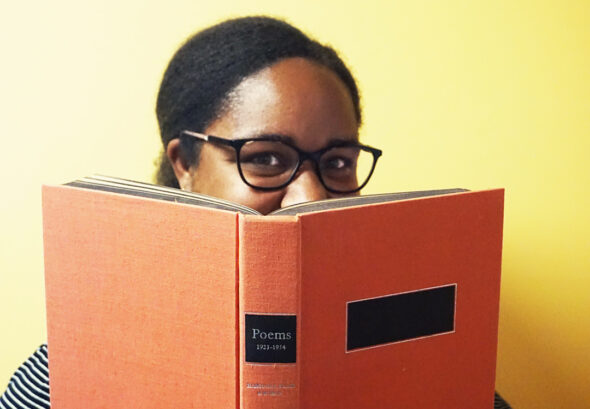
News writer and reporter Jessica Thomas' new column, "Unsolicited Opinions," opens up space dedicated to her opinions, books and sometimes other things. (Photo by Reilly Dixon)
Unsolicited Opinions | ‘The fierce urgency of now’
- Published: February 13, 2023
Content Warning: This column discusses Tyre Nichols; it does not, however, give details of his death.
This past Martin Luther King Jr. Day, I had the pleasure of spending the day with two curious little Bulldogs: one in kindergarten, the other in first grade. We attended the community march, and listened to Bomani Moyenda as he held up a mirror to our community, showing us the different ways that we are upholding many structures of white supremacy. Like good students, my young friends asked lots of questions about King’s life, the purpose of marching, the ways our world looks different from King’s world and the ways things haven’t changed so much.
One topic that Bomani asked the crowd to consider is the way institutions such as schools or the police protect their own, particularly when they are white. He asked about a teacher at Yellow Springs schools who was able to resign her position rather than face consequences for saying a racial slur in front of students. But this column is not about the schools. The lack of accountability is rampant in all of our institutions nationwide, and a recent example should have all of us who say we care about justice outraged.
By now, I’m sure most of us know the name Tyre Nichols and have heard the narrative of his murder at the hands of five Black police officers. The outrageous part is that there were more than five officers involved in Nichols’ death. According to NPR and the AP, seven officers were involved. The Memphis Police Department has released the name of a sixth, white officer, Preston Hemphill, who was the officer who pulled Nichols over, tased him, and was recorded saying he hoped the members of the Scorpion unit would inflict serious harm on Nichols. This was all captured on Hemphill’s bodycam footage. It was also later divulged that three EMTs were also fired for not giving adequate aid when called to the scene.
I was first alerted to the other officers involved this weekend, not by the news outlets who have been parading the photos of the arrested and charged Black officers, but by activists on Twitter, who have been investigating, advocating for public records requests, which are often gatekept by one or a few whose mission is to protect the institution. It is because of the relentless questioning and collective action that we even know about Preston Hemphill, who incited the vicious murder of Tyre Nichols.
I am neither the first nor the last to draw the conclusion that the Memphis Police Department intentionally named the five Black officers before they named the white officers involved. Despite the Memphis Police Department being helmed by a Black woman, the diversity of the force, the body cameras, the training, a man was killed, and his white murderer was protected while his Black murderers were put on display. I am neither the first nor the last to recall James Baldwin’s warning about Black police officers: “A Black policeman could completely demolish you. He knew far more about you than a white policeman could and you were without defenses before this Black brother in uniform whose entire reason for breathing seemed to be his hope to offer proof that, though he was Black, he was not Black like you.”
As all of these realities are swirling through my head, I think, again, of Bomani’s words, the reminder that our nation, states, cities and villages are consistently bolstering police budgets as the police are consistently killing more Black people than ever before. This is Black people’s reality — we are paying taxes to help police officers kill us. Let us not forget that the first police officers were tasked with protecting property, which for a time included slaves. Following that, men were deputized by sheriff’s departments to help catch slaves. This is the history of the police; this is the legacy we are funding.
But it wouldn’t be fair to leave out some other institutions that are complicit with the police. It was intentional to release the video with a press conference; it was intentional to do so on a Friday afternoon. While activists were disseminating information on Twitter, urging people to take care of themselves and prepare for a traumatizing video, large media corporations were silent. We know that police reports can be requested at any time. What happened? Of course, there is a sense of journalistic integrity that must be upheld, and as someone who writes news, I often err on the side of caution when publishing inflammatory information. But when a family wants their story told and is willing to talk, it is our job to get that information out as quickly and accurately as possible. In that sense, I think these news organizations failed.
This is the fierce urgency of now that King talked about and Bomani recounted during the MLK Day march. How quickly can we reimagine what accountability looks like? How many more hashtags do we need before a true reckoning happens?
It feels wrong to close out this column without celebrating the life that Tyre Nichols lived. He was 29, a father to a four-year-old son, a photographer, skateboarder, a person who lived and loved and was cherished. He had ambitions, goals, a future that shouldn’t have ended in this tragedy. Even as I write this, it feels like too little, but I can’t go on without holding some space for Tyre, who was the same age as my younger sister, and whose son is not much older than my daughter. His parents, his loved ones, his friends in the skateboarding community are calling for justice, a justice that looks different from the status quo.
Will we listen?













Comments are closed for this article.